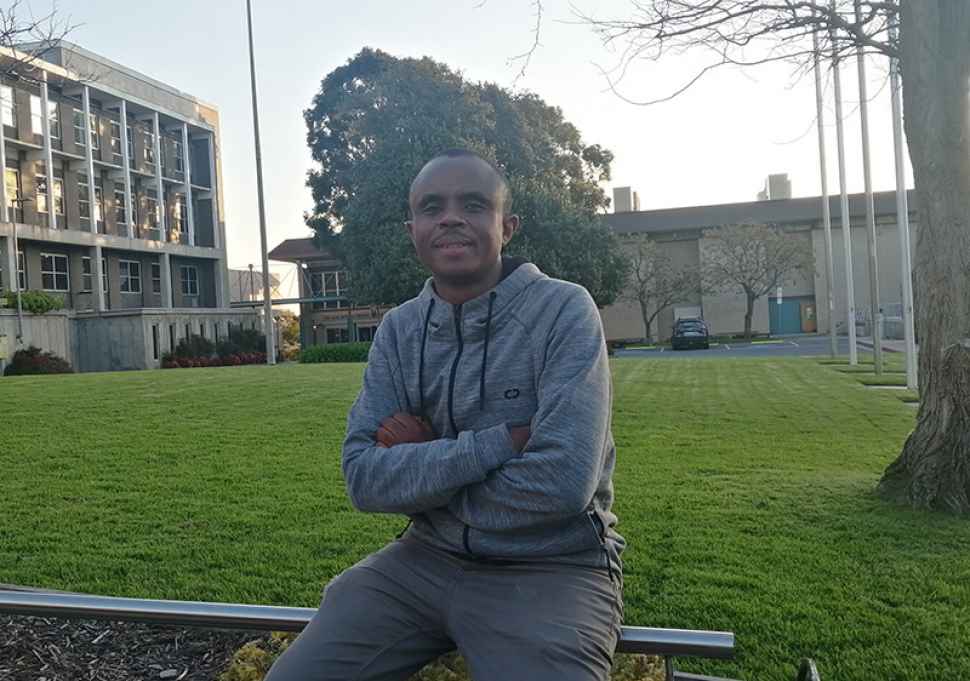Develop the knowledge and skills to shape an inclusive society providing support and advocacy to help people live their best life with our range of disability degree programs.
What does a career in disability look like?
Disability professionals are highly skilled in developing disability practice, policy and leadership knowledge to support people of all ages with diverse needs, including developmental and acquired disabilities.
Demand is rapidly increasing to not only meet the needs presented by the National Disability Insurance Scheme (NDIS) but to also for disability professionals to move into management and leadership roles within this field.
No matter where you are in your career cycle – whether you’re starting out or already working in the industry – our suite of disability programs are designed to meet your needs and those of the industry.
The fast-growing disability sector holds vast opportunities for professionally qualified developmental educators, positive behaviour support practitioners, and a range of disability and related human services roles, to help people with disabilities to flourish.
Employment growth

Australian Government Department of Social Services - 2019
Study options
Potential occupations
- Developmental educator
- Positive Behaviour Support Practitioner
- Skilled disability practitioner
- NDIS support coordinator
- Case manager
- Program coordinator
- Disability employment consultant
- Supervisor or team leader
Potential employers
- Disability support services
- Government sector/NDIS
- Non-government agencies
- Private sector
- Self-employment
The four-year Bachelor of Disability and Developmental Education (BDDE) is accredited by the Developmental Educators Australia Inc (DEAI), and graduates can apply for full membership with the DEAI to practice as a development educator and positive behaviour support practitioner.
The Bachelor of Disability and Community Inclusion (BDCI) forms the first three years of the BDDE curriculum. Graduates of this 3-year course may return to complete the fourth year of the BDDE to be eligible to apply for full membership with the DEAI to practice as a development educator and positive behaviour support practitioner.
More information can be found through the Developmental Educators Australia Inc (DEAI) professional association website.



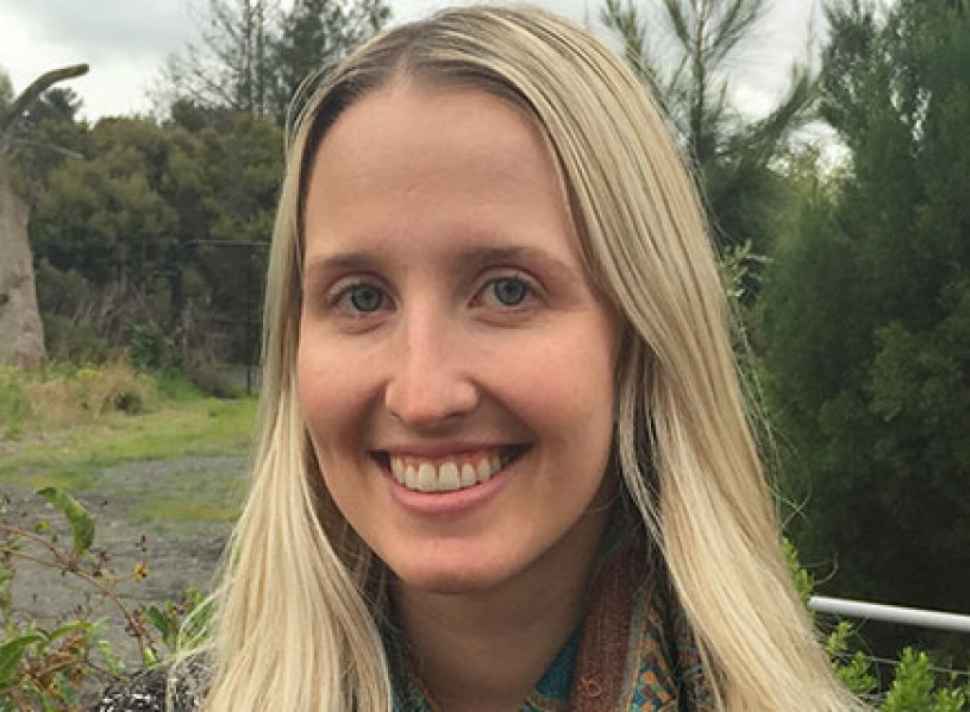
Laynie Dunne-Heynis, Bachelor Of Disability And Developmental Education (Honours) Graduate
“
From a young age I knew I wanted to be in a helping role and make an important difference in people’s lives. My experience as an external Disability and Developmental Education student at Flinders University was exceptional. Entering the professional world and working in the disability sector, I felt nothing short of prepared. The program has greatly expanded my professional networks and opened up multiple exciting opportunities. Thank you.”
Why study Disability and Community Inclusion at Flinders?
- Flinders enjoys partnerships across the spectrum of public, private and not-for-profit organisations such as Acacia Hill School in Alice Springs, DisAbility Living, Autism SA and many more providing you opportunities to make valuable industry connections and build practical skills and experience.
- Our work with industry ensures our suite of disability programs meet the needs of the community
- Our industry partnerships are embedded in both research and education placement.
- We have worked closely with industry to ensure our Bachelor of Disability and Developmental Education graduates, as well as Bachelor of Disability and Community Inclusion students who undertake a fourth year, are eligible for the professional accreditation with Developmental Educators Australia. The Bachelor of Disability and Developmental Education is the only undergraduate course in the country to offer this.
- Teaching staff are members of the Developmental Educators Australia and work closely with the professional body to ensure our teaching aligns with industry needs.
- As a student of the Bachelor of Disability and Developmental Education program you will become prepared for the workforce with over 500 hours of practical field placement, providing you with important connections to industry and hands-on preparation for your career.
- As a student of the Bachelor of Disability and Community Inclusion program you will undertake two 100-hour placements that build skills and knowledge for your career.
- Take advantage of interstate and overseas placement opportunities.
- Smaller cohort teaching ensures a personal approach to learning and the relationships we have with our students and graduates are highly supportive and long-lasting.
- Learn full-time or part-time. Courses are on campus and online.
- Flinders has a long and proud tradition of producing exceptional disability graduates.
- Our graduates have an excellent understanding of advocacy and support services for people of all ages with diverse needs to help them live their best life.
- Flinders graduates have an excellent reputation within industry.
- Many of our teaching staff are active and highly-awarded researchers and members of Flinders University’s Caring Futures Institute.
- From how Lego building blocks can provide better mental health outcomes for teenagers with autism to looking at the future vulnerability of adults with intellectual disability with the death of their parents, we ensure our programs always have the latest evidence-based learning outcomes.
Our inclusive programs
As a leader within this field, Flinders are also committed to encouraging the participation of adults with a range of disabilities, including intellectual disability in the social and educational life of Flinders University. In 2019 we celebrated 20 years of the ‘Up The Hill Project’, a trailblazing inclusive university program that supports people with intellectual disability to learn, experience and graduate from university. This project is supported by the Disability and Community Inclusion Unit at Flinders University which provides a mutually enriching educational opportunity for all. Flinders also run a Community Re-entry program for people with an acquired brain injury.
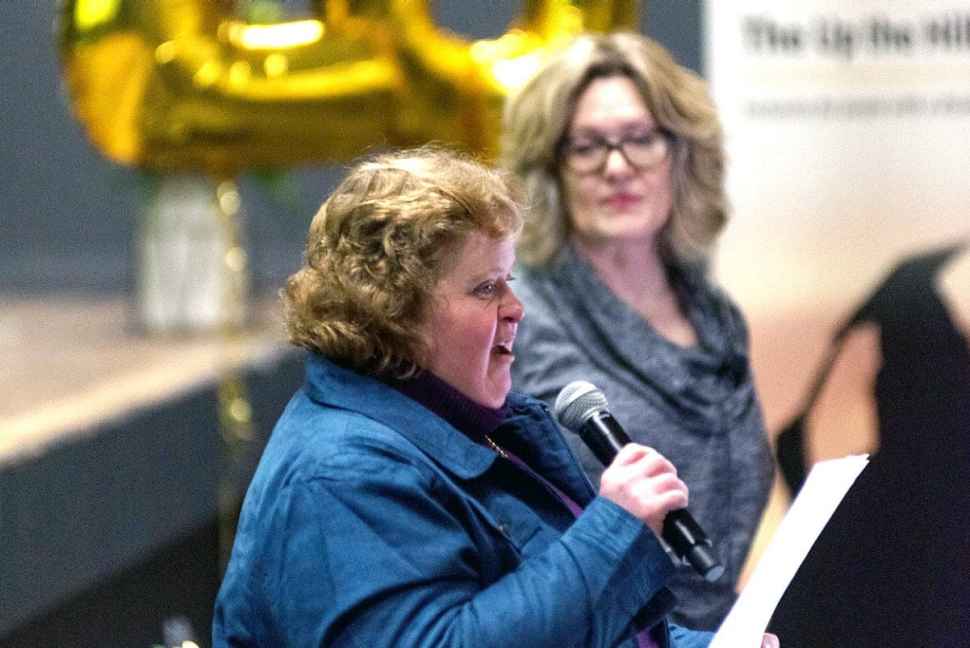
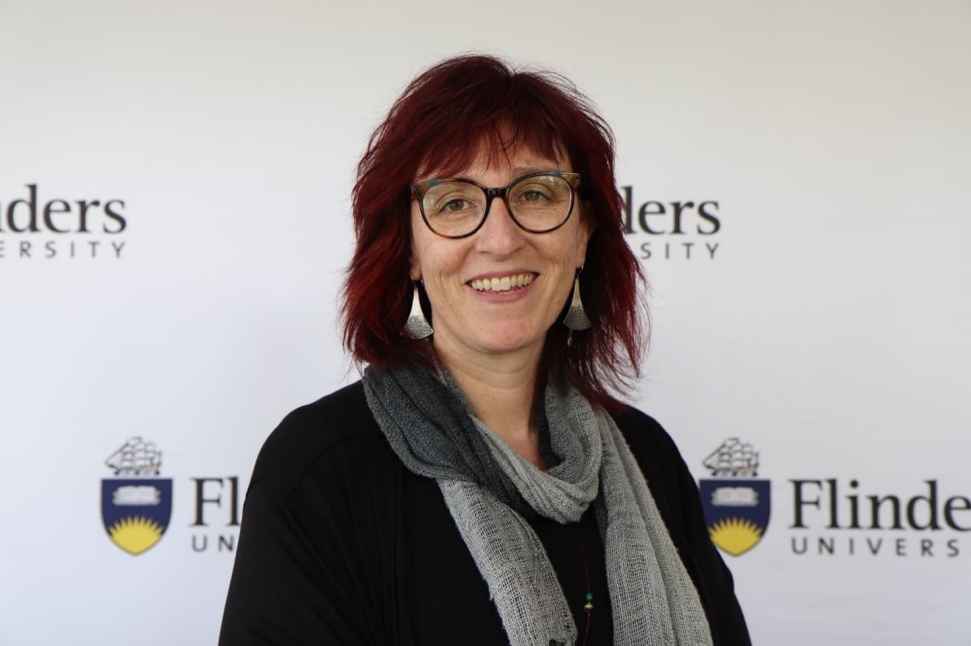
Academic Lead:
Professor Sally Robinson
Sally is a highly awarded researcher, academic and theme lead of Better Communities for the Flinders Caring Futures Institute. Focused on opportunities and barriers to inclusive lives for people with disability, Sally’s work takes an interdisciplinary and collaborative focus to resolving key social policy concerns such as safety and abuse, wellbeing, participation and funding and organisation of community services.
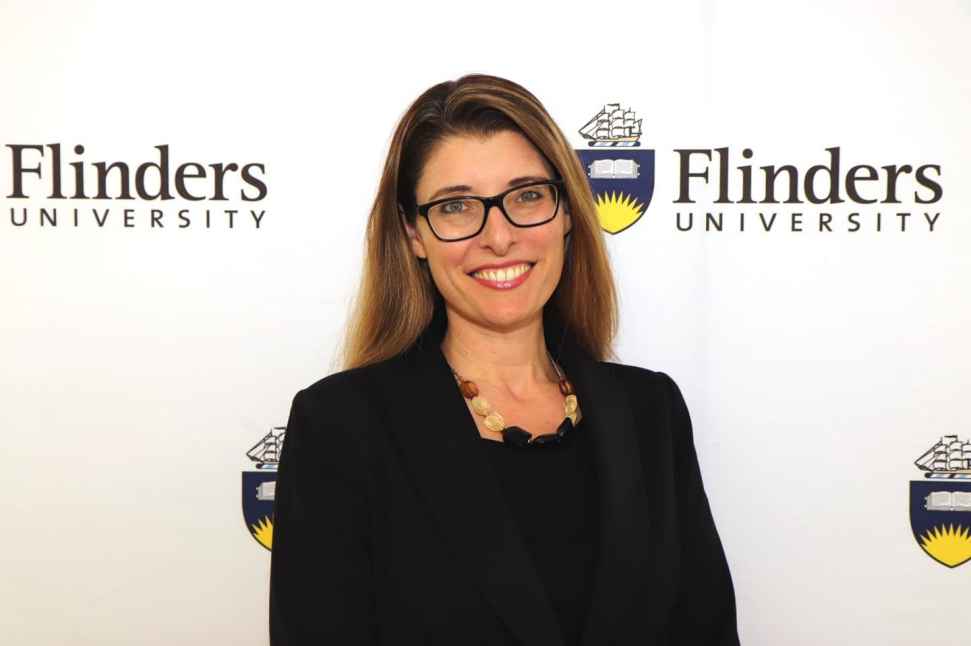
Course Coordinator for Bachelor of Disability and Developmental Education (4yr) Associate Professor Michelle Bellon
Michelle has had a long career in the disability sector as a Developmental Educator, academic and researcher. Michelle is currently an Epilepsy Ambassador, and member of the Editorial Board of Brain Impairment.
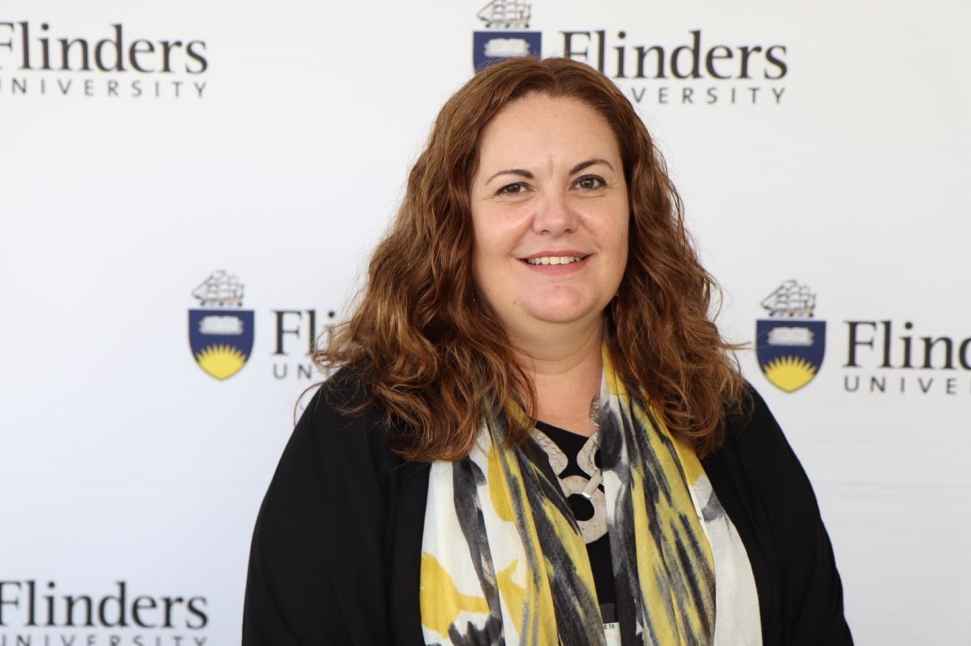
Postgradate Course Coordinator/Lecturer:
Jaime Gardner
Jaime’s professional practice as a Developmental Educator has focussed on working with adults with brain injuries and their families in community rehabilitation. Additionally, Jaime has also worked as a social worker, supporting women and children experiencing domestic violence.
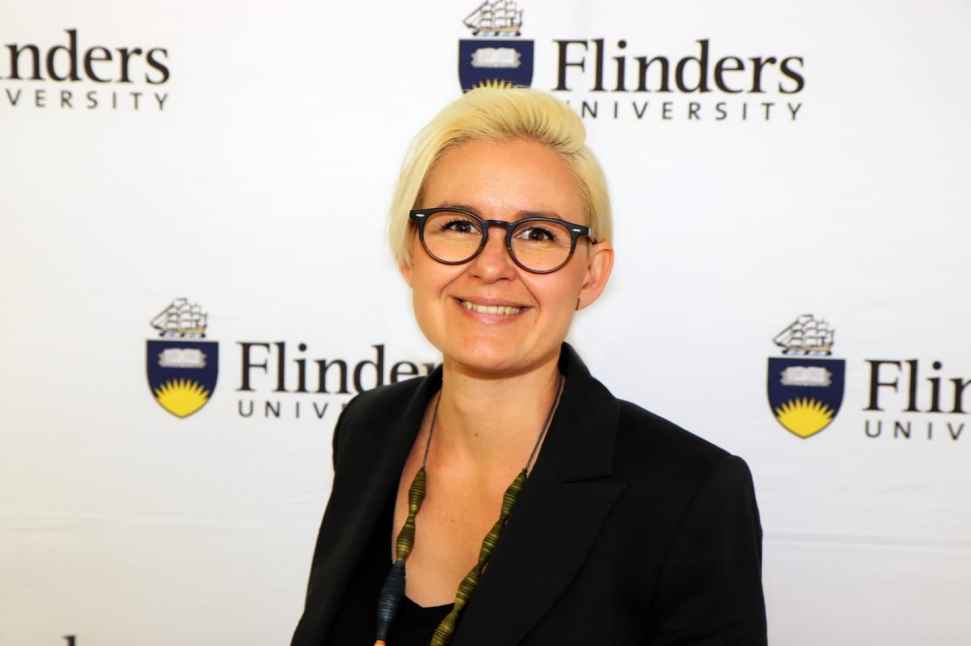
Student Experience Coordinator/Lecturer:
Dr Alinka Fisher
Alinka is a Developmental Educator and Positive Behaviour Support (PBS) Practitioner with expertise in providing, teaching and researching PBS for people with a disability and complex behaviours. In addition, Alinka provides PBS consultation in the disability sector, including professional development training for staff and families, and is the Chair of the PBS Community of Practice.

Course Coordinator for Bachelor of Disability and Community Inclusion (3yr): Dr Fiona Rillotta
Fiona is an active researcher specialising in inclusive university for people with intellectual disability; social networks; family quality of life; and attitudes towards intellectual disability. She supports inclusion of adults with intellectual disability at university and in the community; provides self advocacy training/ mentoring for adults with intellectual disability; program evaluation; disability awareness training; school classroom learning support for students with intellectual disability; and training/ supervising Special Olympics athlete leaders. Fiona is an executive committee member of the International Association for the Scientific Study of Intellectual and Developmental Disabilities (IASSIDD) - Inclusive Education Special Interest Research Group and Quality of Life Special Interest Research Group.
Frequently asked questions
The BDCI is a three-year program which qualifies you to work as a skilled disability practitioner, for example as an NDIS support coordinator, case manager, program coordinator, supervisor or team leader.
Graduates of the four-year BBDE degree are eligible for accreditation as Developmental Educators – allied health professionals skilled in providing therapeutic support, conducting ethical assessment and leading practice in community teams.
The BDCI forms the first three years of the BBDE degree so graduates can return and complete the final year of the BBDE to be eligible to practice as a Developmental Educator.
Positive Behaviour Support is a specialist area of service delivery; to meet specialist qualifications, practitioners need PBS specific qualifications to effectively apply theory to practice. This course consists of theoretical topics, with a practical focus on report writing and plan development. The course provides regular opportunities for interactive dialogue with PBS specialists working in the field, with workshops and activities to guide learning. Currently, this is also the only post-graduate qualification that consists of a PBS practicum and mentoring program, guiding both students in applying theory to practice and interdisciplinary teams in this process.
Yes! With the advent of the NDIS, jobs in this sector are growing rapidly. There are employment opportunities working as a skilled disability practitioner, working as a case manager, an NDIS support coordinator, supervisor or team leader.
For those who graduate as a Developmental Educator, there are opportunities to also provide therapeutic support, ethical assessments and leading practice in community teams. Developmental Educators are highly sought-after industry professionals in the disability sector.
Graduates of the Bachelor of Disability and Developmental Education can apply for accreditation with Developmental Educators Australia Inc (DEAI).
Developmental Educators are recognised as PBS practitioners; you do not need to do the Graduate Certificate in PBS to work in this space given Developmental Educators have completed a four-year qualification with PBS specific curricular.
Yes, this program is available online and we have many students from interstate.
Yes, this program is available to study part-time.
Yes, there is a mid-year entry for all Disability courses except for the Graduate Certificate in Positive Behaviour Support (GCPBS).
You may be eligible for 1 x 4.5-unit practicum credit if you have been in a suitable role for a minimum of 12 months full-time or equivalent.
Yes, you will be eligible for credit. These are currently being reassessed.
No, you are required to complete the practicum within the course rule.
The current pandemic situation (COVID-19) will affect many aspects of your study, from topic availability on campus to how your classes are delivered. For detailed information about the impact of COVID-19 on your study please refer to the Coronavirus (COVID-19) information page.
- Applications are completed via SATAC
- Visit: satac.edu.au/
I am an
International Student
Australia or New Zealand.
I am a
Domestic Student
I'm an Australian Permanent Resident
(including Humanitarian Visa holders).
![]()
Sturt Rd, Bedford Park
South Australia 5042
South Australia | Northern Territory
Global | Online
